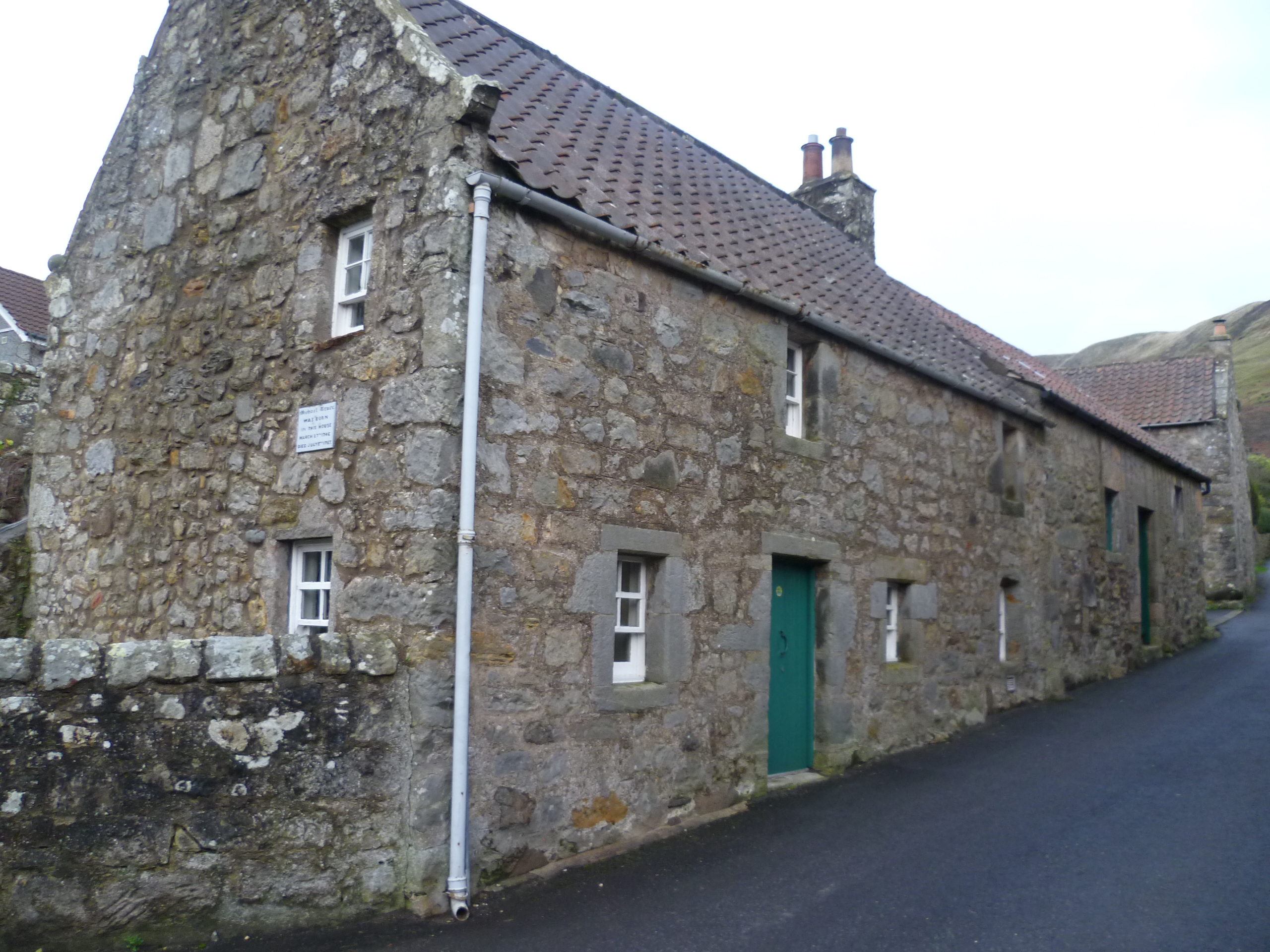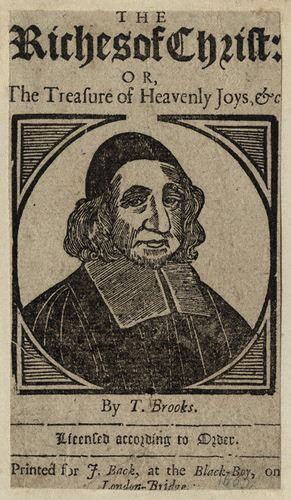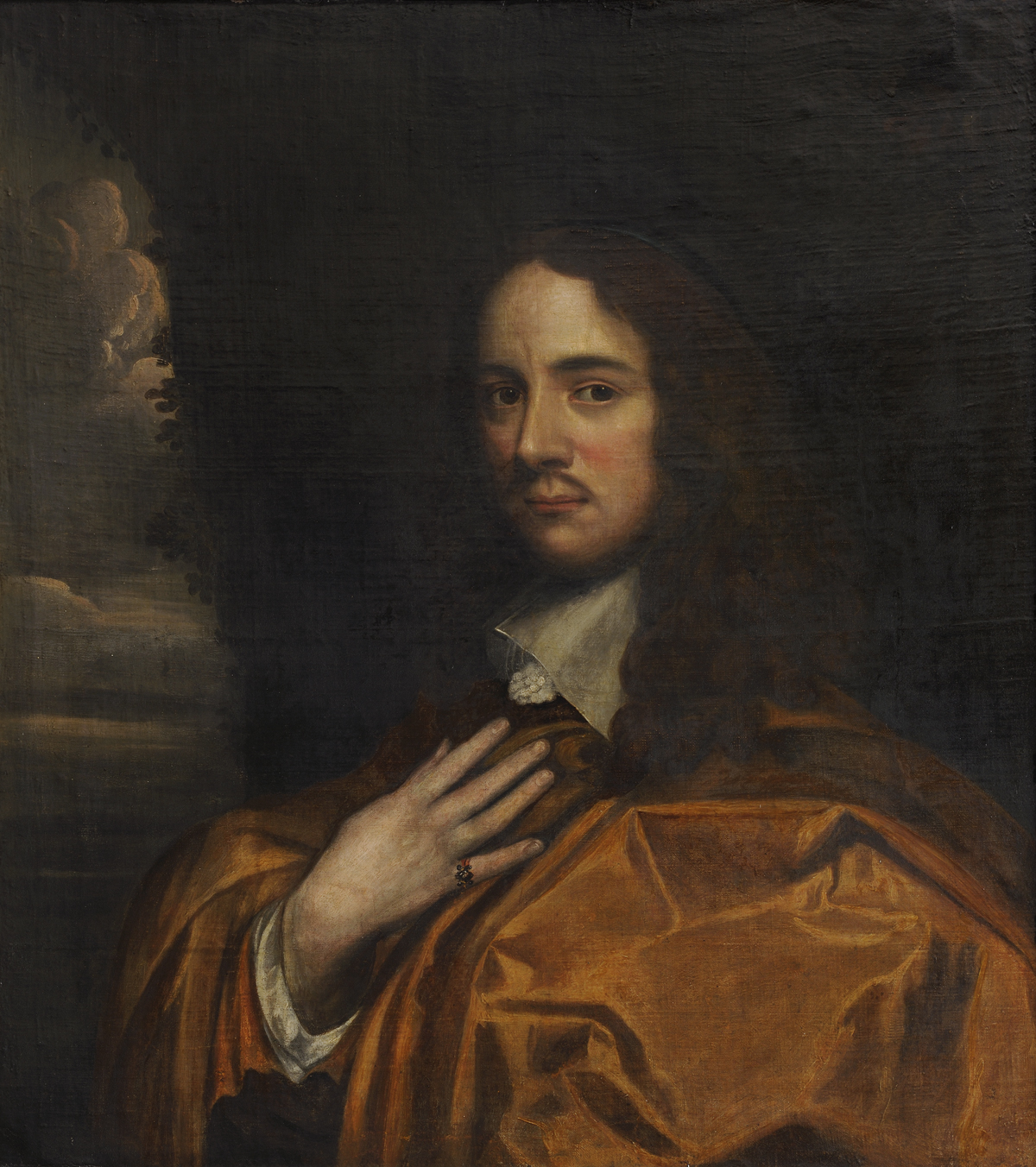|
Grosart
Alexander Balloch Grosart (18 June 182716 March 1899) was a Scottish clergyman and literary editor. He is chiefly remembered for reprinting much rare Elizabethan literature, a work which he undertook because of his interest in Puritan theology. Life The son of a building contractor, he was born at Stirling and educated at the University of Edinburgh. In 1856 he became a minister of the United Presbyterian Church of Scotland at Kinross, serving the congregation known as First United Presbyterian Church. In 1865 he went to Liverpool, and three years later to Blackburn. He resigned from the ministry in 1892, and died at Dublin. Editorial work Among the first writers whose works he edited were the Puritan writers, Richard Sibbes, Thomas Brooks and Herbert Palmer. Editions of Michael Bruce's ''Poems'' (1865) and Richard Gilpin's ''Demonologia sacra'' (1867) followed. In 1868 he brought out a bibliography of the writings of Richard Baxter, and from that year until 1876 ... [...More Info...] [...Related Items...] OR: [Wikipedia] [Google] [Baidu] |
Henry Vaughan
Henry Vaughan (17 April 1621 – 23 April 1695) was a Welsh metaphysical poet, author and translator writing in English, and a medical physician. His religious poetry appeared in ''Silex Scintillans'' in 1650, with a second part in 1655.''Oxford Companion to English Literature'', s. v. Henry Vaughan. In 1646 his ''Poems, with the Tenth Satire of Juvenal Englished'' was published. Meanwhile he had been persuaded by reading the religious poet George Herbert to renounce "idle verse". The prose ''Mount of Olives'' and ''Solitary Devotions'' (1652) show his authenticity and depth of convictions. Two more volumes of secular verse followed, ostensibly without his sanction, but it is his religious verse that has been acclaimed. He also translated short moral and religious works and two medical works in prose. In the 1650s he began a lifelong medical practice. Early life Henry Vaughan was born at Newton by Usk in the Llansantffraed (St. Bridget's) parish of Brecknockshire, the eldest kno ... [...More Info...] [...Related Items...] OR: [Wikipedia] [Google] [Baidu] |
Richard Baxter
Richard Baxter (12 November 1615 – 8 December 1691) was an English Puritan church leader, poet, hymnodist, theologian, and controversialist. Dean Stanley called him "the chief of English Protestant Schoolmen". After some false starts, he made his reputation by his ministry at Kidderminster in Worcestershire, and at around the same time began a long and prolific career as theological writer. After the Restoration he refused preferment, while retaining a non-separatist Presbyterian approach, and became one of the most influential leaders of the Nonconformists, spending time in prison. His views on justification and sanctification are somewhat controversial and unconventional within the Calvinist tradition because his teachings seem, to some, to undermine salvation by faith, in that he emphasizes the necessity of repentance and faithfulness. Early life and education Baxter was born at Rowton, Shropshire, at the house of his maternal grandfather (probably on 12 November 1615 ... [...More Info...] [...Related Items...] OR: [Wikipedia] [Google] [Baidu] |
Richard Crashaw
Richard Crashaw (c. 1613 – 21 August 1649) was an English poet, teacher, High Church Anglican cleric and Roman Catholic convert, who was one of the major metaphysical poets in 17th-century English literature. Crashaw was the son of a famous Anglican divine with Puritan beliefs who earned a reputation as a hard-hitting pamphleteer and polemicist against Catholicism. After his father's death, Crashaw was educated at Charterhouse School and Pembroke College, Cambridge. After taking a degree, Crashaw taught as a fellow at Peterhouse, Cambridge and began to publish religious poetry that expressed a distinct mystical nature and an ardent Christian faith. Crashaw was ordained as a clergyman in the Church of England and in his theology and practice embraced the High Church reforms of Archbishop Laud. Crashaw became infamous among English Puritans for his use of Christian art to decorate his church, for his devotion to the Virgin Mary, for his use of Catholic vestments, and for man ... [...More Info...] [...Related Items...] OR: [Wikipedia] [Google] [Baidu] |
Michael Bruce (poet)
Michael Bruce (27 March 1746 – 5 July 1767) was a Scottish poet and hymnist. Early life Bruce was born at Kinnesswood in the parish of Portmoak, Kinross-shire. His father, Alexander Bruce, was a weaver. Michael was taught to read before he was four years old, and one of his favourite books was a copy of Sir David Lyndsay's works. His attendance at school was often interrupted, because he had to herd cattle on the Lomond Hills in summer, and this early companionship with nature greatly influenced his poetry. A delicate child, he grew up as the pet of his family and friends. He studied Latin and Greek, and at fifteen, when his schooling was completed, a small legacy left to his mother, with some additions from kindly neighbours, enabled him to go to the University of Edinburgh, which he attended during the four winter sessions 1762–1765. Adult life In 1765 he taught during the summer months at Gairney Bridge, receiving about 5/- a year in fees and free board ... [...More Info...] [...Related Items...] OR: [Wikipedia] [Google] [Baidu] |
Thomas Brooks (writer)
Thomas Brooks (1608–1680) was an English non-conformist Puritan preacher and author. Life Much of what is known about Thomas Brooks has been ascertained from his writings. Born in 1608, likely to wealthy parents, Brooks entered Emmanuel College, Cambridge in 1625,See Publisher's Note in ''The Secret Key To Heaven'' (see Works section above) where he was preceded by such men as Thomas Hooker, John Cotton, and Thomas Shepard. He was licensed as a preacher of the gospel by 1640. Before that date, he appears to have spent several years at sea, probably as a chaplain with the fleet. After the conclusion of the First English Civil War, Thomas Brooks became minister at Thomas Apostle's, London, and was sufficiently renowned for being chosen as preacher before the House of Commons on 26 December 1648. His sermon was afterward published under the title, 'God's Delight in the Progress of the Upright', the text being Psalm 44:18: 'Our heart is not turned back, neither have o ... [...More Info...] [...Related Items...] OR: [Wikipedia] [Google] [Baidu] |
List Of Books For The "Famous Scots Series"
This is a list of books published as the "Famous Scots Series" by the Edinburgh publishers, Oliphant, Anderson and Ferrier, from 1896 to 1905. Forty-two of these books were published though least one volume in the series was planned but never published. These books are distinctive for their bright red covers and uniform presentation. They are generally of a quite high scholarly quality. The authors often had access to biographical material which is no longer available. Two versions of each volume were published. An upmarket version has gilded lettering and motifs on the front cover and has gilt tape as book marker. It is about a quarter of inch longer than the ordinary version which is gilded only on the edge. Thirty-three of the authors were men and five were women. It appears that all the women were educated at home, presumably by tutors or governesses. Three of the women wrote biographies of Robert Louis Stevenson, namely, Margaret Moyes Black, Rosaline Masson and Eve Bla ... [...More Info...] [...Related Items...] OR: [Wikipedia] [Google] [Baidu] |
Robert Fergusson
Robert Fergusson (5 September 1750 – 16 October 1774) was a Scottish poet. After formal education at the University of St Andrews, Fergusson led a bohemian life in Edinburgh, the city of his birth, then at the height of intellectual and cultural ferment as part of the Scottish enlightenment. Many of his extant poems were printed from 1771 onwards in Walter Ruddiman's ''Weekly Magazine'', and a collected works was first published early in 1773. Despite a short life, his career was highly influential, especially through its impact on Robert Burns. He wrote both Scottish English and the Scots language, and it is his vivid and masterly writing in the latter '' leid'' for which he is principally acclaimed. Life Robert Fergusson was born in Cap and Feather Close, a vennel off Edinburgh's Royal Mile, later demolished to make way for what is today the southern abutment of the North Bridge. His parents, William and Elizabeth (née Forbes), were originally from Aberdeenshire, but ... [...More Info...] [...Related Items...] OR: [Wikipedia] [Google] [Baidu] |
Herbert Palmer (Puritan)
Herbert Palmer (1601–1647) was an English Puritan clergyman, member of the Westminster Assembly, and President of Queens' College, Cambridge. He is now remembered for his work on the Westminster Shorter Catechism, and as a leading opponent of John Milton's divorce tracts. Early life He was a younger son of Sir Thomas Palmer, knt. (''d''. 1625), and grandson of Sir Thomas Palmer (1540–1626) of Wingham, Kent. He was born at Wingham in 1601, and baptised on 29 March. His mother was the eldest daughter of Herbert Pelham of Crawley, Sussex. He learnt French almost as soon as English, and always spoke it fluently.''Dictionary of National Biography''; :s:Palmer, Herbert (DNB00). On 23 March 1616 he was admitted fellow-commoner in St. John's College, Cambridge; he graduated B.A. 1619, M.A. 1622, and was elected fellow of Queens' College, Cambridge on 17 July 1623. He took holy orders in 1624, and proceeded B.D. in 1631. In 1626, on his way to visit his brother, Sir Thomas Palmer, B ... [...More Info...] [...Related Items...] OR: [Wikipedia] [Google] [Baidu] |
Fulke Greville, 1st Baron Brooke
Fulke Greville, 1st Baron Brooke, ''de jure'' 13th Baron Latimer and 5th Baron Willoughby de Broke Order of the Bath, KB Privy Counsellor, PC (; 3 October 1554 – 30 September 1628), known before 1621 as Sir Fulke Greville, was an Elizabethan era, Elizabethan poet, dramatist, and politician, statesman who sat in the House of Commons of England, House of Commons at various times between 1581 and 1621, when he was raised to the peerage. Greville was a capable administrator who served the English Crown under Elizabeth I and James I of England, James I as, successively, treasurer of the navy, chancellor of the exchequer, and commissioner of the Treasury, and who for his services was in 1621 made Baron Brooke, peer of the realm. Greville was granted Warwick Castle in 1604, making numerous improvements. Greville is best known today as the biographer of Sir Philip Sidney, and for his sober poetry, which presents dark, thoughtful and views on art, literature, beauty and other philoso ... [...More Info...] [...Related Items...] OR: [Wikipedia] [Google] [Baidu] |
Richard Sibbes
Richard Sibbes (or Sibbs) (1577–1635) was an Anglican theologian. He is known as a Biblical exegete, and as a representative, with William Perkins and John Preston, of what has been called "main-line" Puritanism because he always remained in the Church of England and worshiped according to the Book of Common Prayer. Life He was born in Tostock, Suffolk, where his father was a wheelwright; other sources say Sudbury. After attending Bury St Edmunds Grammar School, he attended St John's College, Cambridge from 1595. He was lecturer at Holy Trinity Church, Cambridge, from 1610 or 1611 to 1615 or 1616. It was erroneously held by 18th and 19th century scholars that Sibbes was deprived of his various academic posts on account of his Puritanism. In fact he was never deprived of any of his posts, due to his ingenuity of the system. He was then preacher at Gray's Inn, London, from 1617, returning to Cambridge as Master of Catherine Hall in 1626, without giving up the London position ... [...More Info...] [...Related Items...] OR: [Wikipedia] [Google] [Baidu] |
Richard Gilpin
Richard Gilpin (1625–1700) was an English nonconformist minister and physician, prominent in the northern region. Life The second son of Isaac Gilpin of Strickland Ketel, in the parish of Kendal, Westmorland, and Ann, daughter of Ralph Tonstall of Coatham-Mundeville, County Durham, he was born at Strickland, and baptised at Kendal on 23 October 1625. He was educated at the University of Edinburgh, graduating with an MA on 30 July 1646, and studying first medicine, then divinity. Neither the date nor the manner of his ordination is known. He began his ministry at Lambeth, continued it at the Savoy as assistant to John Wilkins, and then returning to the north preached at Durham. In 1650 William Morland had been sequestered from the rectory of Greystoke, Cumberland. For about two years the living had been held by one West, a popular preacher, who died of consumption. Gilpin succeeded him in 1652 or early in 1653. In the parish of Greystoke there were four chapels, which G ... [...More Info...] [...Related Items...] OR: [Wikipedia] [Google] [Baidu] |
Andrew Marvell
Andrew Marvell (; 31 March 1621 – 16 August 1678) was an English metaphysical poet, satirist and politician who sat in the House of Commons at various times between 1659 and 1678. During the Commonwealth period he was a colleague and friend of John Milton. His poems range from the love-song "To His Coy Mistress", to evocations of an aristocratic country house and garden in " Upon Appleton House" and " The Garden", the political address "An Horatian Ode upon Cromwell's Return from Ireland", and the later personal and political satires "Flecknoe" and "The Character of Holland". Early life Marvell was born in Winestead-in-Holderness, East Riding of Yorkshire, near the city of Kingston upon Hull. He was the son of a Church of England clergyman also named Andrew Marvell (often termed Marvell Senior). The family moved to Hull when his father was appointed Lecturer at Holy Trinity Church , and Marvell was educated at Hull Grammar School. Aged 13, Marvell attended Trinity C ... [...More Info...] [...Related Items...] OR: [Wikipedia] [Google] [Baidu] |






